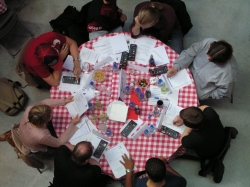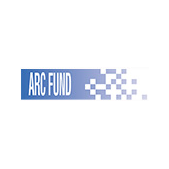I recently heard this quote on the radio from the French 18th century thinker Voltaire: “When the people start to think, bad things happen”.
As many good quotes this is taken completely out of context (the real context being the French Revolution), but it serves as a provocative point of departure for the theme of this blog post: citizen involvement in research and innovation.
A part of the CASI project is to involve citizens from across Europe in research on sustainable innovation. A frequent reaction among the critics I meet is “Why? Let the experts do their job”. The underlying logic is that ‘normal citizens’ - being those who do not possess specialized, professional knowledge – lack necessary insight and therefore they cannot provide sufficiently relevant input for the future research agenda and research policy.
In CASI we involve citizens through citizen panels, not as professional experts but as ‘professional everyday experts’ or what is also referred to as ‘lay experts’. In brief, citizen panels will be hosted in 12 European countries in April 2015 with 20 citizens engaged in each panel (selected to create diversity with regards to at least gender, age, occupation, education, geography). Here citizens will develop their visions for a desirable, sustainable future. The visions will then be sent to a panel of experts who will translate them into research priorities or research policy recommendations. The citizens will then meet again in October 2015 and validate these adaptions of the initial visions in order to make sure that they are true to the original form. Finally, the approved visions will be presented to relevant stakeholders and policy-makers across Europe – both nationally and on a European level conference.
The CASI methodology (which was initially developed in the CIVISTI project) is an example of ‘upstream public participation’, where the public is invited to contribute in setting the priorities for future research in sustainable innovation. ‘Downstream’ involvement would for example be to engage citizens in evaluating or assessing an already developed sustainable technology.
Returning to Voltaire and the criticism of citizen involvement in policy making, a counter argument can be made that the topic of sustainability calls for broad deliberation and ‘upstream involvement’ of a wide array of societal stakeholders – citizens included.
The reason being that sustainable development is not only dependent on innovative technological change but on cultural change as well. In other words, we need to change the way we live our lives in order to secure sustainable development. This calls for democratic deliberation of where we see our world heading, before the strategies are developed.
Since the European research agenda on sustainable innovation is one way of setting the course for future sustainable development, it is important for policymakers to get the view of European citizens on how they actually envision such a future.
Relevant themes:
Public participation
Relevant tags: Social innovation, Technological innovation, Sustainability, Sustainable lifestyles
























